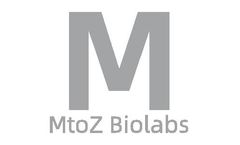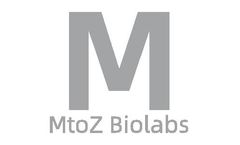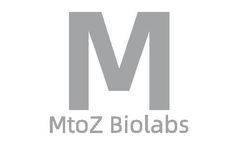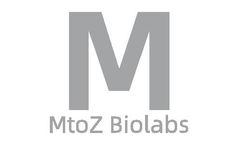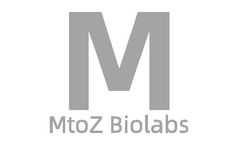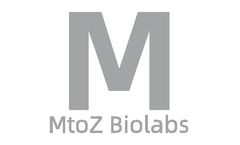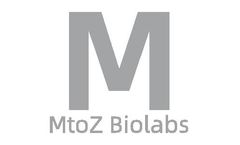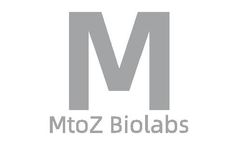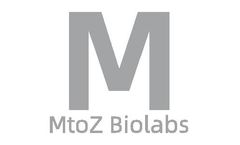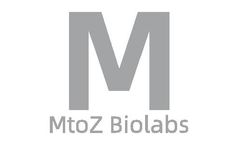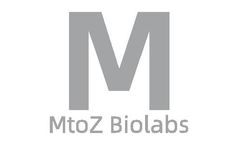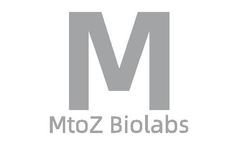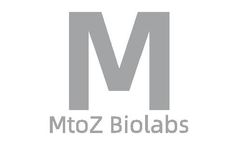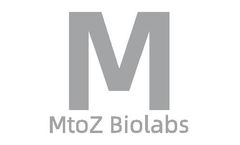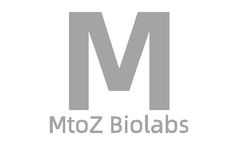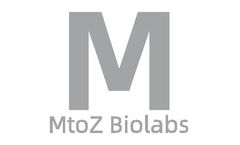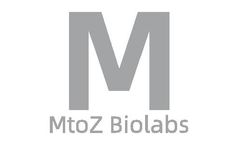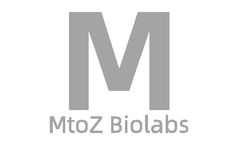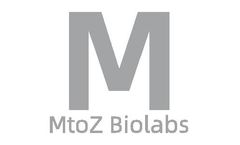- Home
- Services
- canada new brunswick
- marketplace.centrelearnsolutions.com
Refine by
Mtoz Biolabs Marketplace.Centrelearnsolutions.Com Services Available In In Canada New Brunswick
94 services found
by:MtoZ Biolabs based in, MASSACHUSETTS (USA)
Collagen is a basic component of the extracellular matrix and the most abundant protein in the animal body, accounting for about 30% of the total protein. It is a glycoprotein, composed of three polypeptide α-chains with Gly-XY repeating residues (Gly stands for glycine, X for proline, Y for hydroxyproline), and is renowned for its triple helix structure. ...
by:MtoZ Biolabs based in, MASSACHUSETTS (USA)
Aggregation or fragmentation of protein molecules primarily causes variations in molecular size, impacting their biological activity, stability, and their efficacy and safety as pharmaceuticals. In the development and production of biopharmaceuticals, even slight variations in molecular size can reduce drug efficacy or pose safety risks. Thus, precise detection and analysis of these variations ...
by:MtoZ Biolabs based in, MASSACHUSETTS (USA)
Cerebrospinal fluid (CSF) is secreted within the central nervous system (CNS) and fills in the ventricles, the subarachnoid space of the brain, and the spinal column. CSF's role is to protect the brain from physical impacts. Furthermore, CSF plays a crucial role in the circulation of nutrients and chemicals in the blood and in waste management by actively transporting or facilitating bulk flow ...
by:MtoZ Biolabs based in, MASSACHUSETTS (USA)
Endocannabinoids are amphipathilic molecules synthesized from phospholipids in the nervous system. They are a part of the endocannabinoid system, which includes G protein-coupled receptors. The most extensively studied endocannabinoids are N-arachidonoylethanolamine (anandamide) and 2-arachidonoylglycerol ...
by:MtoZ Biolabs based in, MASSACHUSETTS (USA)
Ion channels are made up of special proteins produced by cells, which are aggregated and embedded in the cell membrane, forming pores occupied by water molecules. These pores are the channels for water-soluble substances, which can quickly enter and exit the ...
by:MtoZ Biolabs based in, MASSACHUSETTS (USA)
Receptors are biomolecules that can bind with hormones, neurotransmitters, drugs, or intracellular signaling molecules and are capable of inducing changes in cellular function. Receptors are categorized based on their cellular location into cell surface receptors and intracellular receptors. Each receptor typically has two active sites: one that recognizes and binds to the ligand and another ...
by:MtoZ Biolabs based in, MASSACHUSETTS (USA)
Many drugs target proteins that function as receptors for small-molecule ligands. These ligands bind to and alter the structures of their protein targets, thus modulating their biological activities. Key protein targets in the fields of biology and pharmaceutical research include the nuclear receptors (NRs) that belong to the superfamily of ligand-dependent transcription factors, the ...
by:MtoZ Biolabs based in, MASSACHUSETTS (USA)
One of the main obstacles in drug development is how to deliver drugs effectively to target cells. In general, macromolecules such as proteins and mRNA cannot penetrate the cell membrane because the cell membrane has acquired protective mechanisms through evolution. However, viruses can deliver their genetic material into cells. Therefore, viruses and virus-like particles are widely used to ...
by:MtoZ Biolabs based in, MASSACHUSETTS (USA)
Drug affinity responsive target stability is a label-free small molecule probe technique under chemical proteomics first proposed by Lomenick et al. in 2009, which makes it possible to track and identify target proteins whose stability changes after binding with small molecules. To date, Drug affinity responsive target stability has been a focus in tracking proteins in animals, fungi, bacteria, ...
by:MtoZ Biolabs based in, MASSACHUSETTS (USA)
Monoclonal antibodies (mAbs) are monovalent proteins expressed by B cells, capable of precisely targeting 3D epitopes, which makes it a compelling therapeutic option. Over 70 monoclonal antibody drugs have received FDA approval. Monoclonal antibody drugs dramatically transform modern medicine by offering targeted treatments for a variety of diseases. These antibodies specifically activate immune ...
by:MtoZ Biolabs based in, MASSACHUSETTS (USA)
During the production of bioproducts, it's common to find impurities not only produced in the manufacturing process but also related to the desired products. These product-related impurities typically consist of product variants that do not align functionally with the target product. The most common variants arise from chemical modifications, as well as from the degradation and aggregation of the ...
by:MtoZ Biolabs based in, MASSACHUSETTS (USA)
Antibody therapies leverage human immune system antibodies to treat diseases by targeting specific proteins on pathogens or abnormal cells with exceptional precision. The development of antibody therapies has evolved from early polyclonal sera to monoclonal antibodies, and now to genetically engineered antibodies, focusing on enhancing drug safety, effectiveness, and manufacturing ...
by:MtoZ Biolabs based in, MASSACHUSETTS (USA)
Active Pharmaceutical Ingredients (APIs) are substances or mixtures employed in the production of drugs. They have pharmacological effects or directly contribute to diagnosing, treating, mitigating symptoms, controlling, or preventing diseases, in addition to influencing the structure or function of the body. ...
by:MtoZ Biolabs based in, MASSACHUSETTS (USA)
With the rapid development of biotechnology, drug research and development has gradually entered a new era of precision and personalization. Targeted Protein Degradation (TPD) drugs are an emerging therapeutic strategy that utilizes the body's ubiquitin-proteasome system to degrade specific pathological proteins to achieve precise treatment. As an important new class of therapeutic drugs, TPD ...
by:MtoZ Biolabs based in, MASSACHUSETTS (USA)
In the biological activities of organisms, the function of proteins is achieved through interactions between proteins. Therefore, studying new protein interactions can provide new directions for investigating the potential functions of proteins. Among many protein interaction identification experiments, pull-down is commonly used for in vitro protein interaction testing, and helps discover new ...
by:MtoZ Biolabs based in, MASSACHUSETTS (USA)
The process where proteins separated by electrophoresis are transferred or “blotted” from the gel matrix onto a membrane (usually nitrocellulose or polyvinylidene difluoride (PVDF)), followed by subsequent antibody-based detection on the membrane surface, is known as western blot (WB) or immunoblotting. Mtoz Biolabs provides WB analysis ...
by:MtoZ Biolabs based in, MASSACHUSETTS (USA)
Peptidomics refers to the study of all endogenous bioactive peptides in organism, cell, or tissue. Bioactive peptides are biologically active substances involved in various cellular functions within the organism, which include cytokines, growth hormones, and disease-specific degradation fragments of certain proteins in body fluids. ...
by:MtoZ Biolabs based in, MASSACHUSETTS (USA)
The immunopeptidome comprises all short peptides presented on the cell surface by HLA-I and II molecules for T-cell recognition. Immunopeptidomics analysis aims to explore the dynamics and composition of both type I and II immune peptides. Comprehensive characterization of the immunopeptidome aids in developing new therapies for cancer, immune diseases, and infectious diseases. ...
by:MtoZ Biolabs based in, MASSACHUSETTS (USA)
With ongoing advancements in proteomics mass spectrometry technology, there has been a notable increase in the precision of analytical instruments, resulting in a richer dataset. While this detailed protein data is invaluable for deeper scientific investigation, the vast volumes of data produced by high-throughput proteomic screenings introduce substantial challenges in analyzing protein sample ...
by:MtoZ Biolabs based in, MASSACHUSETTS (USA)
KEGG (Kyoto Encyclopedia of Genes and Genomes) database is a database used for systematic analysis of metabolic pathways and functions of gene products in cells. KEGG helps to study genes and its expression information as a whole network. KEGG integrates data from genomes, chemical molecules, and biochemical systems, including metabolic pathways (PATHWAY), drugs (DRUG), diseases (DISEASE), gene ...

